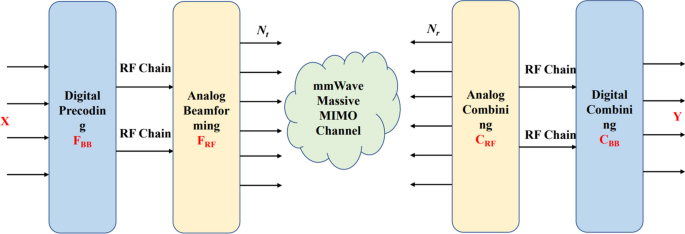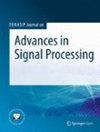Machine learning based low-complexity channel state information estimation
IF 1.9
4区 工程技术
Q3 ENGINEERING, ELECTRICAL & ELECTRONIC
Eurasip Journal on Advances in Signal Processing
Pub Date : 2023-10-01
DOI:10.1186/s13634-023-00994-4
引用次数: 1
Abstract
Abstract In 5G communications, the acquisition of accurate channel state information (CSI) is of great importance to the hybrid beamforming of millimeter wave (mmWave) massive multiple-input multiple-output (MIMO) system. In classical mmWave MIMO channel estimation methods, the exploitation of inherent sparse or low-rank structures has demonstrated to improve the performance. However, most high-accurate CSI estimators incur a high computational complexity and require the prior channel information, which hence present the major challenges in the practical deployment. In this work, we leverage machine learning to design the low-complexity and high-performance channel estimator. To be specific, we first formulate the CSI estimation, in the case of sparse structure, as one classical least absolute shrinkage and selection operator problem. In order to reduce the time complexity of existing compressed sensing (CS) methods, we then approximate the original optimization problem to another one, by imposing the other low-rank constraint that was barely considered by CS. We thus solve this new approximated problem and attain the near-optimal solution of the original problem. One new method excludes any prior channel information, and greatly improves the estimation performance, which only incurs a low time complexity. Simulation results demonstrate the superiority of our proposed method both in the estimation accuracy and time complexity.

基于机器学习的低复杂度信道状态信息估计
在5G通信中,准确的信道状态信息(CSI)的获取对于毫米波(mmWave)海量多输入多输出(MIMO)系统的混合波束形成至关重要。在经典的毫米波MIMO信道估计方法中,利用固有的稀疏或低秩结构已被证明可以提高性能。然而,大多数高精度的CSI估计会产生较高的计算复杂度,并且需要先验信道信息,因此在实际部署中提出了主要挑战。在这项工作中,我们利用机器学习来设计低复杂度和高性能的信道估计器。具体而言,我们首先将稀疏结构下的CSI估计表述为一个经典的最小绝对收缩和选择算子问题。为了降低现有压缩感知(CS)方法的时间复杂度,我们通过施加CS几乎没有考虑的另一个低秩约束,将原始优化问题近似为另一个优化问题。由此,我们求解了这个新的近似问题,并得到了原问题的近最优解。该方法排除了任何先验信道信息,大大提高了估计性能,而且时间复杂度较低。仿真结果表明了该方法在估计精度和时间复杂度方面的优越性。
本文章由计算机程序翻译,如有差异,请以英文原文为准。
求助全文
约1分钟内获得全文
求助全文
来源期刊

Eurasip Journal on Advances in Signal Processing
ENGINEERING, ELECTRICAL & ELECTRONIC-
CiteScore
3.40
自引率
10.50%
发文量
109
审稿时长
3-8 weeks
期刊介绍:
The aim of the EURASIP Journal on Advances in Signal Processing is to highlight the theoretical and practical aspects of signal processing in new and emerging technologies. The journal is directed as much at the practicing engineer as at the academic researcher. Authors of articles with novel contributions to the theory and/or practice of signal processing are welcome to submit their articles for consideration.
 求助内容:
求助内容: 应助结果提醒方式:
应助结果提醒方式:


